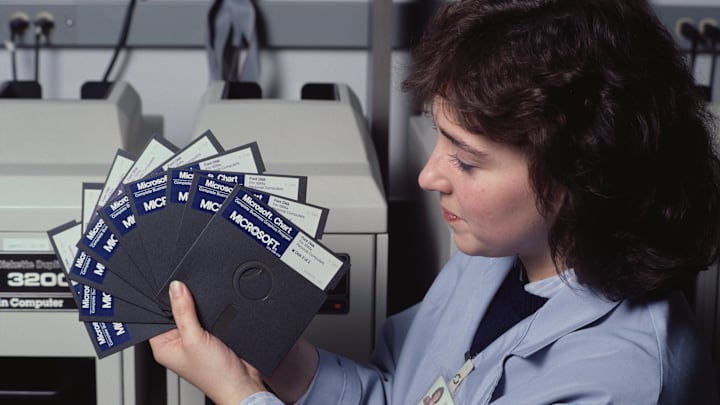Gen Z may not realize it, but there was once a time when personal computer users relied heavily on floppy disk storage for everything from data retention to gaming. The world has moved on to solid state and cloud storage—unless you’re in the German Navy, in which case, you’re keeping a part of your fleet operational thanks to 8-inch floppies.
According to Tom’s Hardware, the Navy is only now nearing replacement solutions for the floppy disks that help manage its Brandenburg-class F123 frigates (warships) that monitor submarine activity. Referencing a German operational memo, the site reports that the floppies are used in basic ship functions, including movement and power generation. The alternative is unclear, though it might involve an emulator that would replace the disk drives.
The F123s were first put into service in the 1990s. Even then, 8-inch floppies were passé. Those disks initially had 80 kilobytes of storage space, and were introduced in 1971 as an alternative to the punch cards used in large mainframe computers. Later versions offered 1.2 megabytes of data. But the format itself was rather cumbersome and was quickly usurped by the 5.25-inch mini-floppy in 1976 and the 3.5-inch version that persisted well into the 1990s and beyond.
While this seems to indicate the German military is antiquated, it’s not uncommon for industries to cling to dated technology. According to WIRED, floppies are still in used in medical, molding, and aviation fields. The Boeing 747-200, a cargo plane that debuted in 1987, uses floppies to update its flight management system; the U.S. military was using 8-inch disks in its nuclear program in 2019.
Why? Upgrading can be expensive and disruptive. And if the disks are still commercially available, it can sometimes make little sense for operators to switch. That applies to other outdated tech, too. In Hamada, Japan, at least one bank insists that business data be delivered via floppy. If you want to complain about it, the bank prefers you send them a fax.
